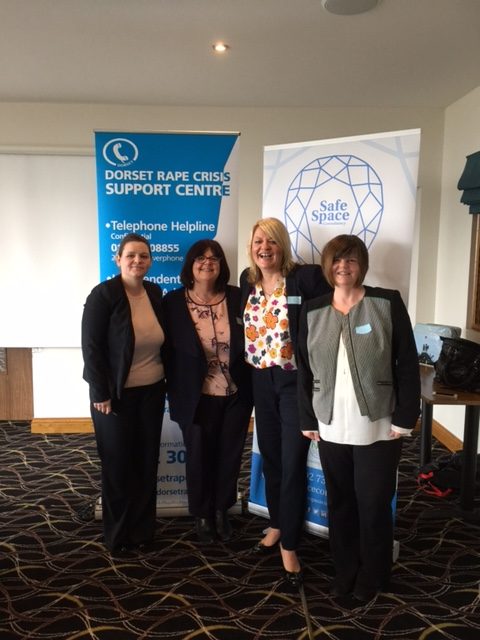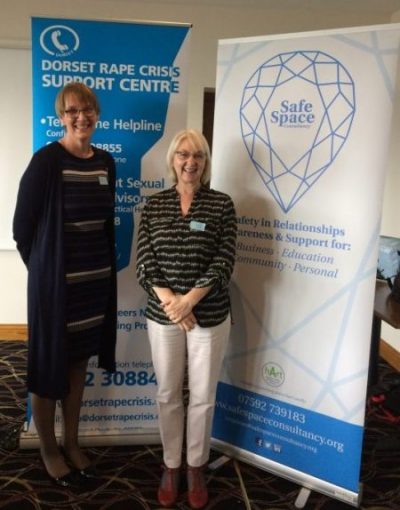We need a culture change in our attitude to stalking if we are going to stop these devastating crimes from happening.
How can we bring this about? We need to raise awareness about stalking and work together to reduce the risk of people getting harmed.
Read the article by HMIC “Living in fear – the police and CPS response to harassment and stalking”
To date, stalking has not been taken seriously enough and a new report published on Wednesday by HMIC Police and the CPS argues lessons need to be learnt about the impact of stalking on victims. The report also said not enough is understood or being done to protect victims and prevent perpetrators of stalking carrying out their harmful crimes. Stalking impacts the workplace in the following ways:
1 in 5 women and 1 in 10 men will experience stalking in their lifetime
79% of perpetrators will use workplace resources to target their victim
50% of stalking victims have curtailed or stopped work due to stalking
53% of employed women missing at least three days of work per month due to domestic abuse or stalking
Domestic abuse and stalking costs UK businesses more than £2.3bn per year
The workplace is identified as a high-risk environment for victims of stalking.
The evidence for this is supported by high profile cases such as
Dr. Ellie Aston – stalked by a patient | Read the article here
Shania Grice – met her stalker at work and was killed in her home | Read the article here
Hollie Gazzard – stalked by an ex-partner and killed at work in a beauty salon | Read the article here
This won’t ever happen to us, we confidently say. Unfortunately, it can and has life-changing, devastating effects when it does. Stalking can happen to anyone, it can affect women and men of all ages and backgrounds, but it’s more likely to be targeted towards females.
Unhelpful attitudes that need to change…
“Oh you have an admirer, aren’t you the lucky one!”
“Hopefully it will fizzle out.” A police officer’s response after a victim has reported stalking offences to the police for 7 years!
A perpetrator of domestic abuse who uses coercive control is more likely to stalk. This behaviour is often triggered when a relationship ends. A stalker does not respect another person’s boundaries – the workplace will not deter them.
If a person finally finds the courage and means to end a relationship that is when the stalker is at their most dangerous and the victim is most vulnerable. The victim may need to close all their social media accounts, move house, leave their job and leave the area entirely. Stalkers will also target their victims’ friends, family and work colleagues.
KEY QUESTIONS FOR EMPLOYERS
As an employer, what do you have in place to address this? How would you respond if an employee came to you and says, “I have a problem with this person, I don’t know what to do” When you consider a victim will suffer 100 incidences of stalking before they finally report it, what they really want to say is, “Help me! I’m terrified!” You could ring the Police, but as their report has identified, they need training on this subject too so you may not get the response you expected.
Employers have a duty of care towards their employees and staff and need to be fully aware of the nature and impact of domestic abuse and stalking, on an individual and the business.
What you can do as an employer is
Believe them!
Don’t judge
Have compassion
Report it immediately
Keep evidence and a diary of incidences
Having a clear understanding of the issue means you can spot the signs of an employee suffering domestic abuse and/or stalking before it gets to crisis point. Thereby reducing the risk of harm to a valued employee and to your business.
For further information and how to access CPD Accredited Training on The Impact of Domestic Abuse and Stalking in the Workplace, please get in touch us via our contact page.
Refs:
Paladin National Stalking Advocacy Services Raising The Bar: Best Practices on Stalking Cases Conference 2017
Exploring the relationship between stalking and homicide, J. Monckton-Smith, K. Szymanska and S. Haile, University of Gloucestershire, Suzy Lamplugh Trust, 2017.










